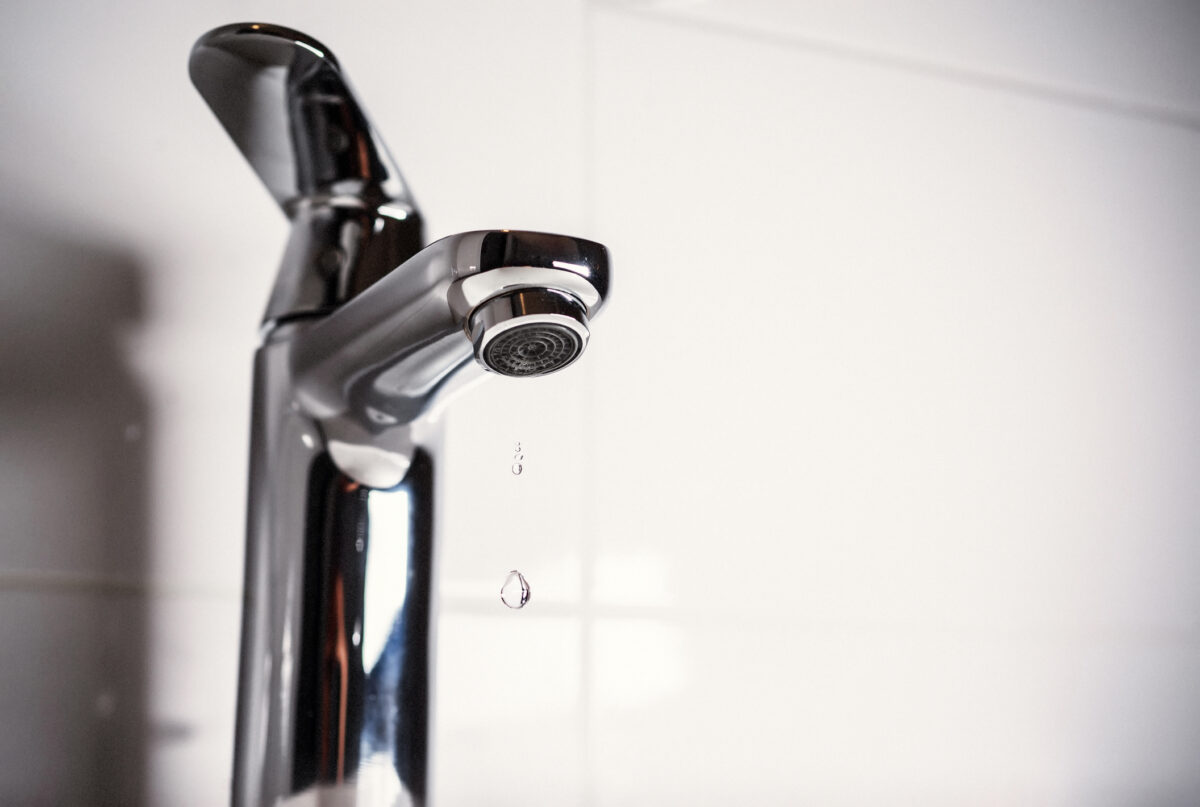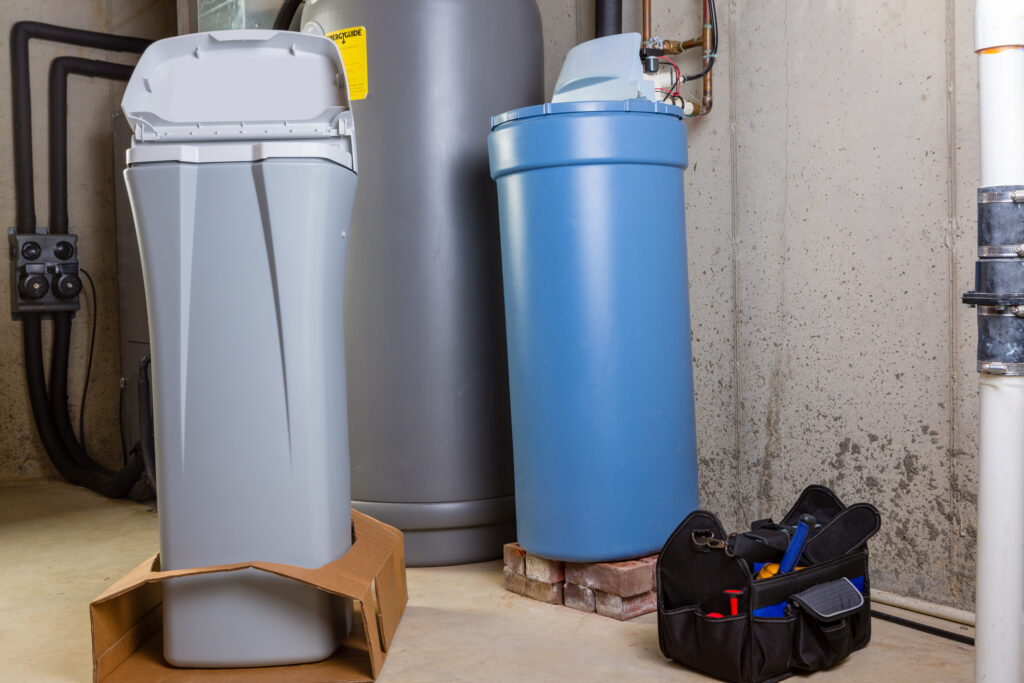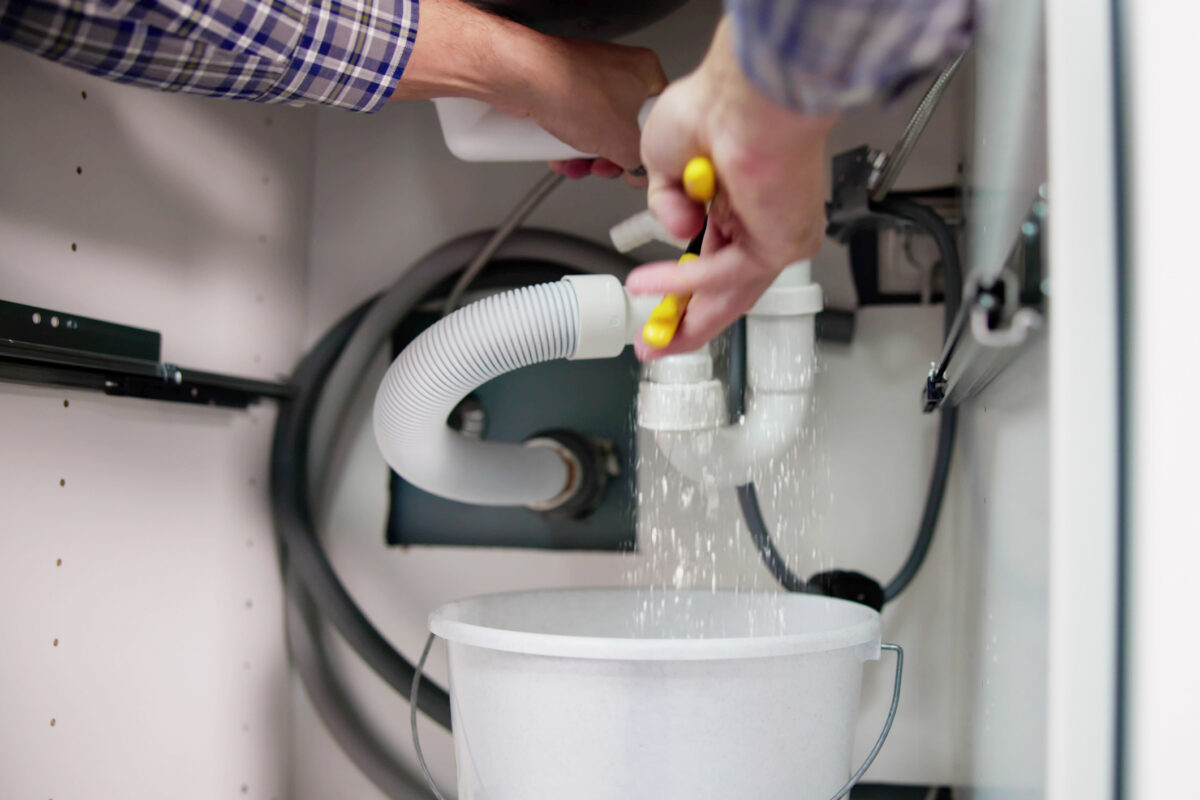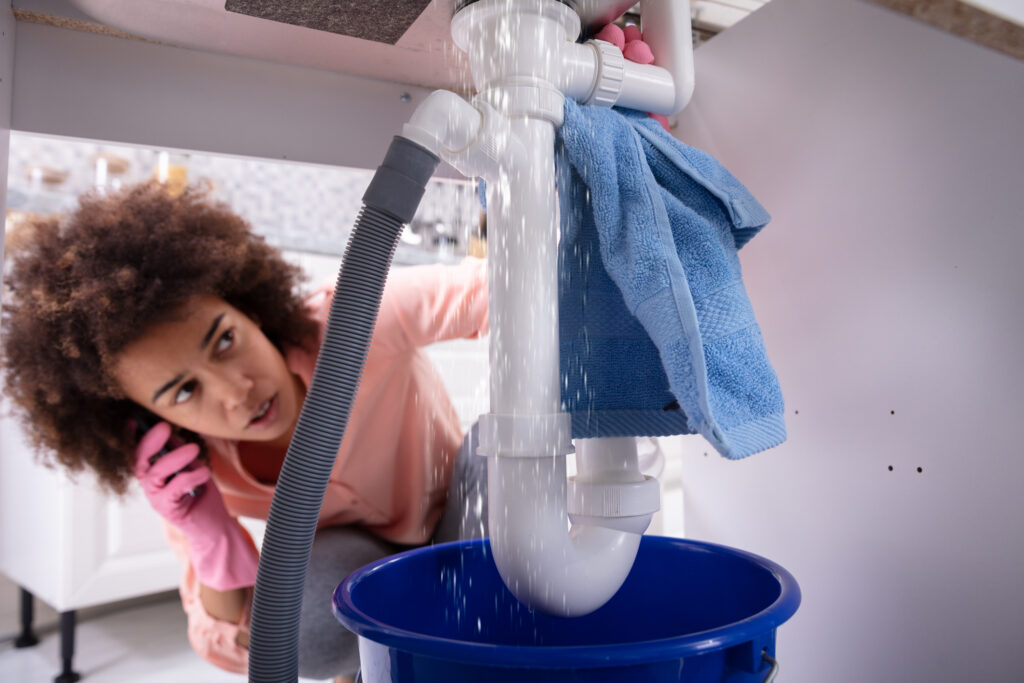Low Water Pressure? Here’s What You Should Check
Experiencing low water pressure in your home can be more than just an annoyance; it disrupts daily routines and tasks. Whether you’re in Oakley, OH, trying to take a quick shower, or in Montgomery, OH, attempting to wash the dishes, the last thing you need is a trickle from your taps. This common problem has a variety of causes, from simple fixes to more complex issues requiring professional attention. Understanding these causes is the first step toward restoring your water flow to its full potential.
Clogged aerators and showerheads are often the culprits behind low water pressure. These are usually the easiest to diagnose and fix, often requiring just a bit of cleaning. However, if the problem persists, it might be time to look deeper into your plumbing system. Identifying the root cause early can save you from more severe problems down the line.
For residents of Oakley and Montgomery, aging pipes could also be to blame. Over time, pipes can corrode or accumulate mineral deposits, narrowing the path for water to flow. This not only reduces water pressure but can also affect the quality of your water. Regular inspections can help catch these issues before they escalate.
When DIY solutions and basic inspections don’t resolve the issue, it’s crucial to call in professionals like Halpin Plumbing. They have the expertise to diagnose and fix problems ranging from hidden leaks to major blockages. Remember, addressing low water pressure promptly not only restores convenience but also protects your plumbing system from further damage.
Understanding Low Water Pressure: Causes and Symptoms
Understanding the various causes of low water pressure is crucial for any homeowner. Sometimes, the issue might be as simple as a closed valve. If you’ve recently had plumbing work done or a water outage in your area, check to ensure all main water valves are fully open. This is a common oversight that can significantly affect water flow in your home.
Another potential cause could be a leak in your plumbing system. Leaks divert water away from where it’s needed, leading to noticeable drops in pressure. Keep an eye out for wet spots on floors, walls, or ceilings, as these can be telltale signs. Early detection and repair can prevent more serious damage to your home and plumbing.
In Oakley, OH, and other areas, the municipal water supply can also be a factor. If the water pressure issue is not limited to your home but affects your neighbors as well, the problem might lie with the local water supply. Contacting your water provider can confirm whether the issue is widespread and if there are any known solutions or timelines for repair.
Finally, installing water pressure boosters can offer a solution for homes consistently plagued by low water pressure. These devices amplify water pressure within your plumbing system, ensuring an adequate flow. While not a fix for all causes, they can be particularly effective when the source of the problem is external, such as issues with the municipal supply in Montgomery, OH. Consulting with a professional plumber can help determine if this is a viable option for your situation.
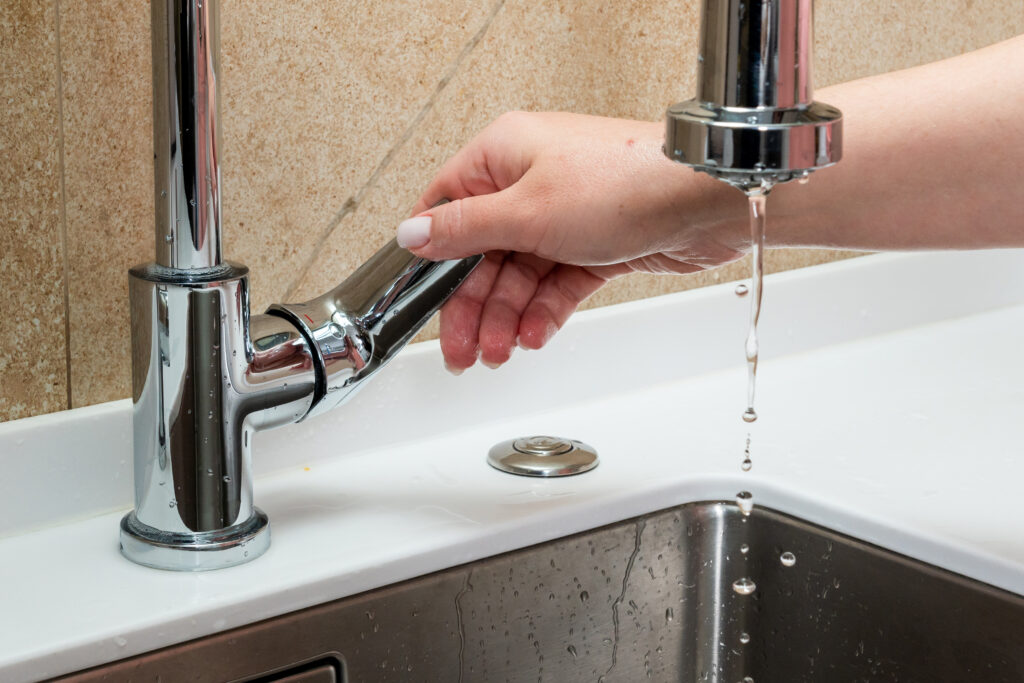
Photo from iStock – Credit: Denis Shevchuk
How to Check Your Home’s Water Pressure
If you’re facing low water pressure, checking your home’s water pressure is a straightforward first step. Start by using a pressure gauge, which you can attach to a spigot outside your home. This tool will give you a precise reading of your water pressure in pounds per square inch (PSI). Ideally, your reading should fall between 40 and 60 PSI, indicating healthy water pressure.
Should the pressure gauge show a reading below 40 PSI, it’s a clear sign that your home is experiencing low water pressure. This could be due to a variety of reasons previously mentioned, such as closed valves or leaks within your plumbing system. In such cases, further investigation is required to pinpoint the exact cause and determine the right solution to restore proper water flow.
In Oakley, OH, residents might find that adjusting the pressure regulator can solve their water pressure issues. This valve controls the water pressure entering your home from the municipal supply. If it’s set too low or is malfunctioning, it can result in significantly reduced water pressure. Adjusting or replacing this regulator can often quickly resolve the problem.
For those in Montgomery, OH, who have checked these common issues and still face low water pressure, it might be time to consult with a professional. Experts like Halpin Plumbing can offer a more in-depth analysis, identifying and fixing problems that might not be apparent to the average homeowner. Their expertise ensures that every aspect of your plumbing system is functioning optimally, safeguarding against low water pressure.
The Role of Clogged Aerators in Low Water Pressure
Clogged aerators are often overlooked yet common culprits of low water pressure in homes. These small fixtures, attached to the tip of faucets, can gather mineral deposits over time, blocking water flow. Cleaning or replacing a clogged aerator is a simple task that can significantly improve water pressure. It’s a quick fix that residents in Oakley, OH, can easily manage without professional help.
In some cases, the issue extends beyond a single faucet, indicating more widespread problems in your plumbing. If cleaning aerators in various locations doesn’t restore water pressure, it’s possible that the issue lies deeper within your pipes. This scenario suggests it’s time to inspect for more complex issues, such as corrosion or sediment buildup in the pipes themselves. Homeowners in Montgomery, OH, facing such challenges may need to consult with plumbing professionals.
Engaging a plumber to assess your home’s plumbing can uncover hidden issues affecting water pressure. Experts like Halpin Plumbing have the tools and knowledge to diagnose problems beyond simple aerator clogs. They can check for internal pipe damage, leaks, or other factors that DIY inspections might miss. This step ensures that all potential causes of low water pressure are addressed, restoring proper flow throughout your home.
Finally, maintaining regular plumbing check-ups can prevent low water pressure from becoming a recurring issue. By keeping aerators clean and consulting with plumbers for more in-depth inspections, homeowners can avoid the frustration of weak water flow. Regular maintenance not only preserves water pressure but also extends the life of your plumbing system, making it a wise investment for any homeowner.
Identifying and Fixing Leaky Pipes
Identifying and fixing leaky pipes is a critical step when addressing the issue of low water pressure in your home. Leaks can be sneaky, often hidden within walls or under floors, making them hard to detect without the right tools. If you notice a mysterious increase in your water bill or hear the sound of running water when all taps are off, it might be a sign of a leak. Residents in Oakley, OH, should consider these indicators as a prompt to investigate further.
Once a leak is suspected, visually inspecting exposed pipes for signs of moisture or damage can help localize the problem. For areas that are harder to access, listening for the sound of dripping water or using moisture meters can be effective. Homeowners in Montgomery, OH, facing such challenges might find it beneficial to call in professionals who have specialized equipment for leak detection. This approach ensures that all leaks, even those out of sight, are identified and can be addressed.
Repairing leaks promptly is crucial to restoring water pressure and preventing water damage to your home. Small leaks can often be fixed with simple patch kits or by tightening connections, but more significant leaks may require replacing sections of pipe. Attempting DIY repairs can be tempting, but understanding when to call a plumber can save time and avoid potential complications. Professional plumbers have the experience to make repairs efficiently, ensuring that the job is done right the first time.
In addition to fixing current leaks, taking preventative measures can help avoid future issues with low water pressure. Regularly checking pipes for corrosion or wear and being mindful of changes in water pressure can alert you to potential problems before they escalate. Implementing simple habits, like not over-tightening faucets and avoiding chemical drain cleaners, can also prolong the life of your plumbing. By staying proactive, homeowners can maintain optimal water pressure and safeguard their plumbing systems against leaks.
The Impact of Aging Plumbing on Water Pressure
Aging plumbing is a significant factor contributing to low water pressure in many homes. As pipes grow older, they may corrode or become clogged with mineral deposits, reducing the water’s flow. This is a common issue for residents in Oakley, OH, where older homes might have plumbing that hasn’t been updated in decades. Regular inspections can help identify these problems early, preventing a minor issue from becoming a major inconvenience.
In Montgomery, OH, homeowners experiencing low water pressure should consider the age of their plumbing system. Over time, even high-quality pipes can degrade, leading to leaks or restricted water flow. Addressing these issues promptly can restore water pressure and extend the lifespan of the plumbing system. Consulting with a professional plumber can provide insights into whether repair or replacement is the most effective solution.
The impact of aging plumbing on water pressure cannot be overstated. Not only does it affect daily activities like showering and cleaning, but it can also signal more severe problems within the plumbing system. Homeowners should be vigilant, watching for signs of reduced water pressure and acting quickly to investigate the cause. Early detection and repair can save time, money, and the hassle of dealing with more significant plumbing failures.
Lastly, upgrading old pipes can dramatically improve water pressure and overall plumbing health. While this might seem like a daunting investment, the benefits of a fully functional, efficient plumbing system are manifold. Residents in both Oakley and Montgomery, OH, will find that taking proactive steps towards modernizing their plumbing can lead to better water pressure, quality, and peace of mind. Engaging with a trusted plumbing service can make this process smooth and effective, ensuring water flows freely in every tap.
When to Clean, Repair, or Replace Your Pipes
Determining whether to clean, repair, or replace your pipes can significantly impact your home’s low water pressure issues. In Oakley, OH, residents often find that a thorough cleaning of their pipes removes mineral deposits, restoring water flow. This is especially true for homes with hard water, where sediment build-up is common. Consulting with a plumber can help decide if cleaning will suffice or if more extensive measures are needed.
Sometimes, repairs are necessary when cleaning isn’t enough to solve the problem of low water pressure. Small leaks or damaged sections of pipe can often be fixed without the need for complete replacement. Residents in Montgomery, OH, should be aware that timely repairs not only restore water pressure but also prevent larger issues down the line. It’s crucial to address these repairs promptly to maintain a healthy plumbing system.
However, there are instances where repairing is no longer a viable option, and replacing pipes becomes necessary. Aging plumbing systems or those severely damaged by corrosion may require a complete overhaul. This step can dramatically improve low water pressure and prevent future plumbing emergencies. Homeowners facing this situation should consult with professionals to understand the scope and benefits of pipe replacement.
Ultimately, the decision to clean, repair, or replace pipes should be informed by a professional assessment of your plumbing system. Each home has unique needs, and what works for one might not be the best solution for another. Engaging with a reputable plumbing service ensures that homeowners take the most effective action to resolve their low water pressure issues, safeguarding their home’s plumbing health for years to come.
Knowing When to Call a Professional Plumber
Despite the effectiveness of DIY solutions for tackling low water pressure, certain situations necessitate the expertise of a professional plumber. In Oakley, OH, homeowners might encounter complex issues beyond their skill set, such as deep-seated blockages or problems with the municipal supply line. These scenarios are best handled by professionals who have the necessary tools and experience. Recognizing when you’re out of your depth is crucial for preventing further damage to your plumbing system.
In Montgomery, OH, persistent low water pressure despite trying all suggested fixes is a clear indicator that it’s time to call in the experts. Professional plumbers can conduct a comprehensive assessment of your plumbing system to identify underlying causes that aren’t immediately apparent. Their ability to diagnose and remedy complex issues can save homeowners time and money in the long run. Trusting a professional with your plumbing ensures that the job is done right the first time, restoring your water pressure efficiently.
Moreover, engaging a professional plumber can offer preventative solutions that extend beyond immediate repairs. They can provide valuable advice on maintaining your plumbing system to avoid future issues with low water pressure. This proactive approach can be particularly beneficial, helping to identify potential problems before they escalate into major concerns. Homeowners can thus enjoy the peace of mind that comes from knowing their plumbing is in good hands.
Ultimately, while many low water pressure problems can be resolved through DIY methods, recognizing when to seek professional help is key. Whether you’re dealing with recurring issues in Oakley, OH, or facing a sudden drop in water pressure in Montgomery, OH, a qualified plumber can offer the expertise and solutions needed. Making the call to a professional not only addresses the immediate problem but also contributes to the long-term health of your plumbing system.

Photo from iStock – Credit: mesh cube
Frequently Asked Questions
What causes low water pressure?
Low water pressure often stems from clogged aerators or pipes. Sometimes, it’s due to a leak you can’t see. Aging plumbing systems can also reduce flow. If you’re unsure, a professional plumber can help identify the cause.
How can I test my water pressure?
To test your water pressure, you need a gauge that attaches to a faucet. Screw it onto any hose bib or tap. Then, turn the water on fully to read the pressure. If it’s below 40-45 psi, you might be experiencing low water pressure.
Can a plumber fix low water pressure?
Yes, a plumber can address low water pressure issues effectively. They have the tools and expertise to diagnose the root cause. Whether it’s a clogged pipe or a leak, they can fix it. Trusting a professional like Halpin Plumbing ensures your system runs smoothly again.
What are common signs of low water pressure?
If your shower feels more like a trickle than a torrent, it’s a clear sign of low water pressure. You might also notice it takes longer to fill pots or bathtubs. Sometimes, water from faucets may sputter, indicating air in the pipes. Another hint is when appliances that use water, like dishwashers, take more time to run their cycles.
Should I install a water pressure booster?
Installing a water pressure booster can be a good solution if you’re dealing with persistently low water pressure. This device amplifies the pressure of water entering your home, improving flow. However, it’s important to first identify the root cause of the issue with a professional like Halpin Plumbing. They can advise whether a booster is the best fix or if another solution is needed.
